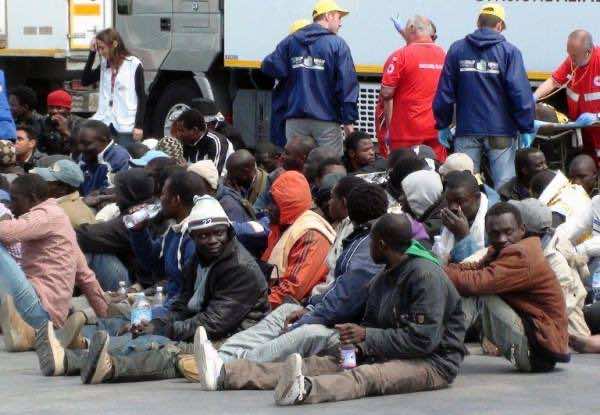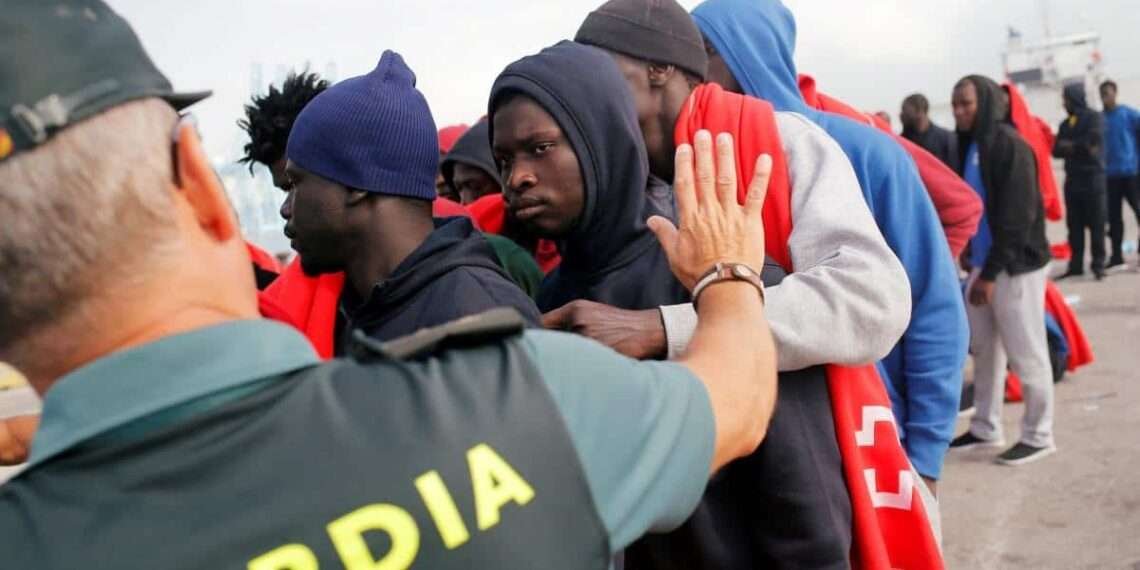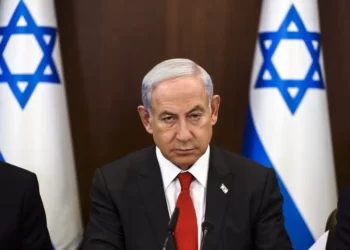The President of the European Commission, Ursula von der Leyen, and Spain’s Prime Minister, Pedro Sánchez, have embarked on a journey to Mauritania to finalize a series of agreements covering migration and energy.
This diplomatic move comes amidst a concerning trend of increase in illicit people-smuggling activities aimed at the Canary Islands.
This comes in light of upcoming data from Frontex, the EU’s border agency, which is expected to reveal a significant increase in people-smuggling activities to the Spanish Islands from West African shores over the past year.
The EU leaders are scheduled to hold discussions with Mauritania’s president, Mohamed Ould Ghazouani on Thursday, February 8, 2024. The focal points of the talks will include “security, migration, and stability in the Sahel region,” as outlined in an official statement.
Mauritania and Senegal stand as a significant departure point for many individuals striving to reach the Canaries. Reports indicate that this route has become the “most active” for human traffickers enticing travelers into perilous journeys towards the EU.
According to data released by the Spanish interior ministry last week, 7,270 people were illicitly transported across the 900-mile stretch of water in January. This marks a substantial increase from the 566 individuals recorded in the same month in 2023.
As the European Parliament elections approach in June and anti-migration sentiments intensify across several member states, the EU is actively working to strengthen its diplomatic relations with Tunisia, Egypt, and now Mauritania.
This initiative is part of a broader strategy to establish strategic alliances in response to the evolving political landscape as well as exploring measures to reduce migration figures.
However, the EU is also cognizant of the necessity to establish legal pathways for migrants.

Migrants are essential for filling employment vacancies in nations grappling with aging populations and for contributing to the development of clean energy resources.
Hans Leijtens, the newly appointed Head of Frontex, emphasized the importance of managing migration for the future of the 27-member bloc.
In an interview on Wednesday, February 8, 2024, he underscored his commitment to ensuring that human rights are ingrained in the organization’s core principles. After nearly a year in his new role, Leijtens said he wanted Frontex to have human rights as “part of our DNA”.
During the tenure of Hans Leijtens’s predecessor, who ultimately resigned amid widespread criticism, Frontex encountered numerous allegations of complicity in human rights violations.
“If there are violations, there will be consequences,” he said.
“Migration is a global phenomenon. We need to manage migration because we can’t cope with unmanaged migration to Europe. But a full stop – for me that seems very difficult, not to say impossible.”
Hans Leijtens
Last year, Frontex reported 380,000 illegal border crossings, the highest number since 2016.
The EU Seeks To Extend Its Influence By Bolstering Security In West Africa
The European Commission announced that the trip to Mauritania would involve several signing ceremonies for financial and developmental agreements.
Additionally, there would be a roundtable discussion focusing on hydrogen energy, featuring delegates from Mauritania, Spain, the EU, and the European Investment Bank (EIB), the lending institution of the EU.
While China and Russia have historically viewed investment in African infrastructure as a means to extend their influence, the EU is also keen on strengthening security in West Africa.
This is particularly pertinent as France’s influence in countries like Mali and Burkina Faso is perceived to have diminished significantly.
The groundwork for a partnership with Mauritania was laid last October when the EU and President Ghazouani initiated plans for foreign investment aimed at assisting the country in decarbonization efforts and developing alternative energy sources such as hydrogen, solar, and wind power.
READ ALSO: Zimbabwe Pursues Currency Stability




















